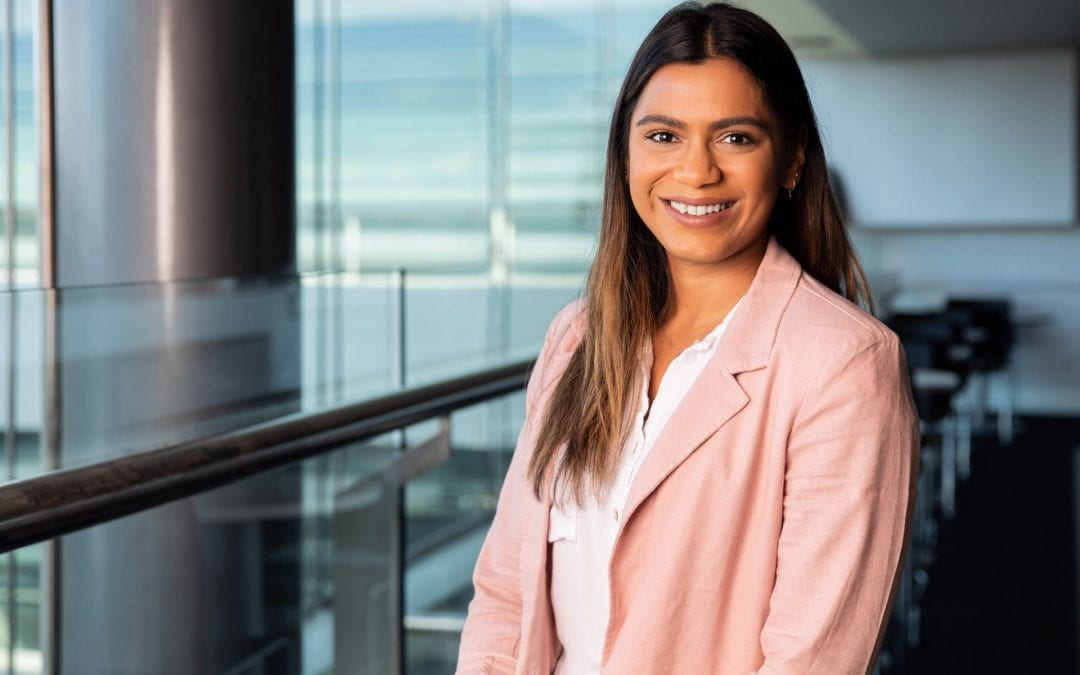Dr Stephanie D’Souza is a researcher with A Better Start’s Big Data team. She talks about her current project which looks at whether Māori tamariki screened for ADHD concerns are less likely to receive medication than non-Māori, the best piece of advice she was given, and her passion outside of her research work.
Can you tell us a little about your current A Better Start project and why this project is important?
Most of my work with A Better Start has focused on attention-deficit/hyperactivity disorder (ADHD) in children and adolescents. ADHD can impact children’s learning and development, particularly once they start school, and this can lead to some negative longer-term outcomes. However, early identification and management of ADHD reduces this risk.
I’m currently working on a project with colleagues from the Big Data and Resilient Teens themes, looking at whether Māori tamariki who are screened for ADHD concerns in the B4 School Check (B4SC) are less likely to receive ADHD medication than non-Māori children. The B4SC is a free health and development check for 4 year olds and is the last Well Child Tamariki Ora check that children receive. This research suggests that improvements may be needed in the pathway to treatment following screening via the B4SC, particularly for tamariki Māori living in non-urban and high deprivation areas.
What stage is your research at?
We are just in the process of revising the manuscript following peer review and hope to have the paper published by the end of the year.
As a researcher, what makes you excited about this project?
All children should have the best start to life possible and it’s important that various systems (eg. health, education etc) are in place to support this. The aim of the B4SC is to identify whether a child may need extra support in their health and development to ensure they are given the best opportunities once they start school. I’m passionate about doing research that is going to have some real-life significance, and by investigating whether inequities exist in access to ADHD treatment following the B4SC, I’m hoping this can lead to practical improvements in early identification and management of ADHD.
What do you love about being involved with A Better Start?
I love that I’m part of a wider team focused on understanding how to support children in having the best start to life. I also love that A Better Start consists of a diverse group of researchers whose expertise spans across disciplines and methodologies. With this diversity comes different perspectives, and I think this can add a lot of depth to the research conducted.
What is something you are passionate about outside of research and your work?
Fitness – I’m quite active and love working out. I find that it’s great for both my physical and mental health. There’s also a lovely community at my local gym, so I enjoy going there for some social interaction too.
The best piece of advice you have ever received?
Don’t sweat the small stuff – basically, always think of the bigger picture and don’t get stressed out over little inconveniences.
A great book you have read recently?
A book that I read recently and would recommend is The Thursday Murder Club by Richard Osman. It’s about a group of senior citizens at a retirement village who help a young police officer solve the murder of a local property developer. Despite the murder mystery content, the book was witty with some loveable characters. It’s the first in a series, so I’m looking forward to reading the next book soon.
The five people (alive or not) you would love to meet?
Amelia Earhart, Freddie Mercury, Michelle Obama, Mindy Kaling and Natacha Océane (this one’s a niche pick – Natacha is an athlete, fitness influencer, and entrepreneur with a background in biophysics and shares evidence-based health and fitness content on her platforms).
- Meet more A Better Start researchers here

